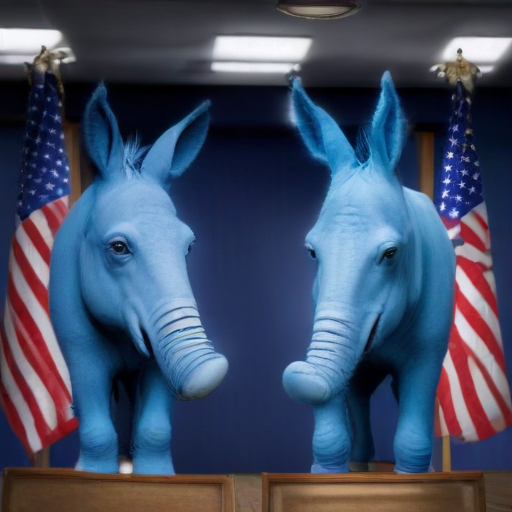In a significant political shift, President Biden has officially withdrawn from the race for the Democratic presidential nomination, following increasing pressure for him to step aside after what many deemed a poor debate performance against Republican rival Donald Trump. Biden has endorsed Vice President Kamala Harris as his successor, solidifying her candidacy for the nomination. She has garnered support from influential figures including California Governor Gavin Newsom, Pennsylvania Governor Josh Shapiro, and New Jersey Governor Phil Murphy.
Analysts at Goldman Sachs suggest that Harris’ economic policies are unlikely to diverge significantly from those of Biden if she secures the nomination. In their assessment, Goldman announced that the Democrats’ fiscal and trade policy agenda is expected to remain stable under Harris’ leadership. They noted a slight increase in the chances of Democrats maintaining control of the White House, estimating it at just below 40%.
As the election approaches, Goldman Sachs has highlighted critical fiscal issues, particularly concerning tax policies. The expiration of the personal income tax provisions from the Tax Cut and Jobs Act by the end of 2025 will be a pivotal factor, with the incoming administration tasked with deciding the future of these cuts and potential new taxes.
Goldman’s projections include significant changes to tax rates under a potential Democratic victory: a proposed tax rate of 39.6% for individuals earning $400,000 or more (up from previous levels of 35% and 37%), an increased corporate tax rate potentially rising to 28%, and a higher Social Security and Medicare tax rate on incomes above $400,000.
In anticipation of her nomination, speculation is rife regarding potential vice presidential candidates, with names like Shapiro, North Carolina Governor Roy Cooper, Kentucky Governor Andy Beshear, and Arizona Senator Mark Kelly coming to the fore.
This development marks a critical transition for the Democratic party, presenting a chance for renewal and a differentiated approach while striving for continuity in economic policy amidst a shifting political landscape. The potential for Harris to lead could inspire a wave of progressive policies while retaining the core aspects of Biden’s strategy.
Overall, the political scene remains dynamic, with opportunities for fresh ideas and leadership as the election season unfolds.
